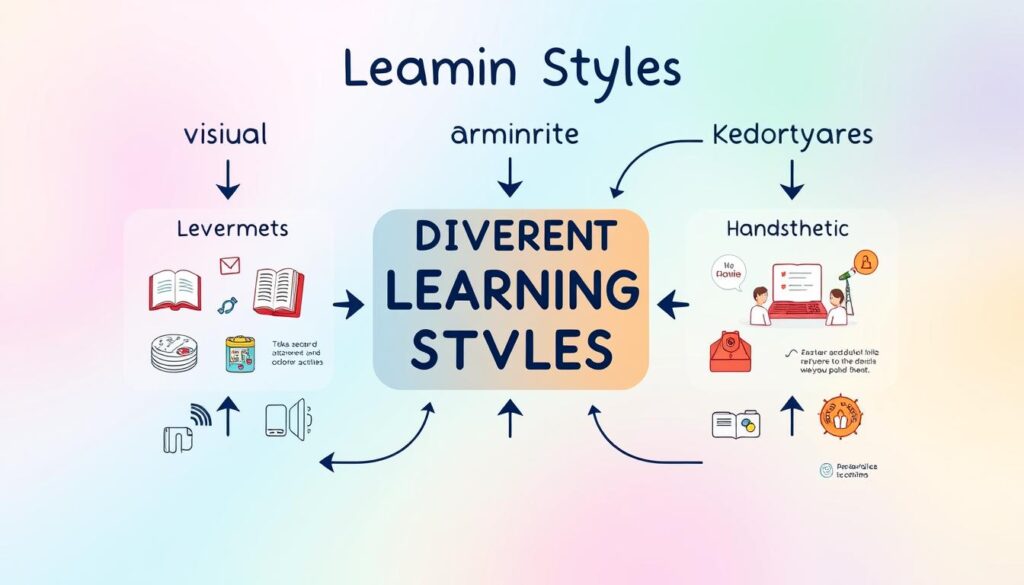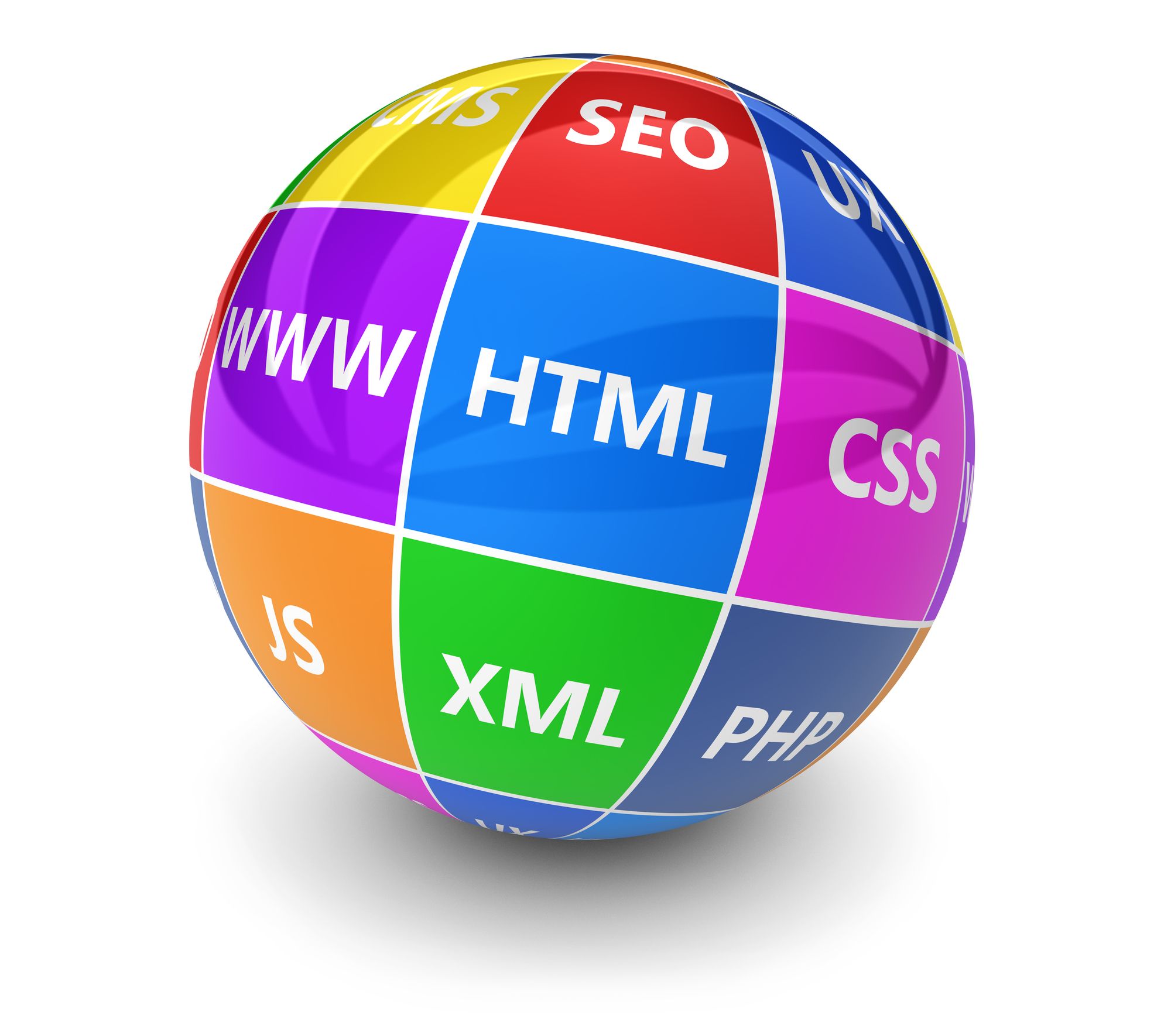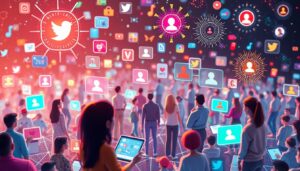למידה מתמדת היא מרכזית בעולם המהיר של היום. אנו תמיד זקוקים לכישורים ולידע חדש. גישה למגוון חומרי למידה היא חיונית לשיפור כישורים ולצמיחה אישית.
בזכות הטכנולוגיה, למידה היא קלה יותר מתמיד. אנשים בכל גיל יכולים להמשיך ללמוד ולצמוח. במאמר זה, נבחן חומרי למידה שונים. נראה כיצד הם מתאימים לסוגי הלמידה השונים וסייעה בצמיחה אישית ומקצועית.
מסקנות מרכזיות
- למידה מתמדת היא חיונית להתאמה לשוק עבודה מתפתח.
- חומרי למידה משפרים שיפור כישורים וצמיחה אישית.
- גישה למשאבים מקוונים הופכת את הלמידה לנגישה יותר מתמיד.
- הבנת סגנונות הלמידה שלך עשויה לשפר את תוצאות הלמידה.
- התעסקות עם חומרי למידה מגוונים מקדמת חינוך מאוזן.
הקדמה ללמידה מתמדת
למידה מתמידה היא על שינוי דרך בה אנו חושבים על חינוך. זה מראה לנו שהלמידה אינה מסתיימת לאחר בית ספר. במקום זה, היא ממשיכה דרך השכלה רציפה. זה תומך בלמידת מבוגרים שמסייעת לנו לצמוח.
היות תלמיד מתמיד משפר פיתוח אישי בכמה דרכים. אלה שממשיכים ללמוד יכולים למצוא עבודות טובות יותר ולהסתגל במהירות לשינויים. לכן, חיפוש אחר ידע הוא גם מטרה אישית ואסטרטגיה חכמה לקריירה.
למידה מתמידה גם עושה אותנו סקרנים וחזקים, מוכנים להתמודד עם מצבים חדשים. זה מלמד אותנו לספוג למידה, הן לעבודה והן לצמיחה אישית. לכן, החינוך הופך להיות מסע שנמשך לכל החיים.
הבנת חשיבות חומרי למידה
החשיבות של חומרי למידה היא מרכזית ללמידה מוצלחת. הם משאירים משאבי למידה חיוניים שעוזרים בהבנת ובזיכרון של מידע. חומרי למידה מגיעים בצורות שונות כמו ספרים, מאמרים מקוונים ומדיה. הוויכוח הזה עוזר לעמוד בצרכי הלומדים השונים.
מחקרים מראים כי חומרי למידה איכותיים תומכים בלמידה ובחשיבה. כאשר תלמידים משתמשים בחומרים איכותיים, הם מתחברים יותר לתוכן שהם לומדים. החיבור הזה מביא לציונים טובים יותר ולצמיחה.
- רלוונטיות למטרות הלימוד
- פורמטים שונים לתלמידים שונים
- נגישות לכולם, כולל תלמידים עם מוגבלויות
- מידע עדכני המשקף תוצאות חדשות וטרנדים
הבנת הערך של חומרי למידה מסייעת למורים ולתלמידים. כלי אלה נותנים מבנה ומעוררים סקרנות. הם מעודדים את התלמידים להמשיך ולהשתפר.
| סוג חומרי למידה | יתרונות | דוגמאות |
|---|---|---|
| ספרי לימוד | כיסוי מקיף של נושאים | ספרי לימוד סטנדרטיים מהוצאות |
| משאבים מקוונים | גישה מיידית למידע מעודכן | אתרי אינטרנט, ספרי אלקטרוניים ומאמרים |
| תוכן מולטימדיה | מעורבות של מספר חושים לשמירה טובה יותר | סרטונים, פודקאסטים וסימולציות אינטראקטיביות |
סוגי חומרי למידה לסגנונות למידה שונים
אנשים לומדים בדרכים שונות, לכן חומרי הלמידה מחולקים לקטגוריות כדי להתאים לסגנונות אלה. כל קטגוריה משתמשת ביתרות כדי לשפר את הלמידה.
למידה חזותית כוללת פריטים כמו תרשימים, דיאגרמות, סרטונים ואינפוגרפיקות. הם עוזרים ללומדים חזותיים להבין על ידי הצגת מידע בדרך מרתקת ופשוטה. זה עושה רעיונות מורכבים יותר קלים להבנה ולזכירה.
כלי למידה שמאזינים מיועדים לאלה שלומדים הטוב ביותר על ידי שמיעה. דברים כמו פודקאסטים, ספרי שמע והרצאות מושלמים עבורם. הם יכולים ללמוד בכל מקום, מה שמושלם עבור אנשים תפוסים.
משאבים למידה קינסטטיים הם על פעולה. עם סימולציות, סדנאות ופעילויות אינטראקטיביות, לומדים יכולים להיות חלק מהשיעור. שיטת הלמידה הזו מבוססת על ניסיון ועוזרת להם להבין ולזכור על ידי חוויה.

| סגנון למידה | סוג חומר | דוגמאות |
|---|---|---|
| למידה חזותית | עזרים חזותיים | תרשימים, דיאגרמות, סרטונים, אינפוגרפיקות |
| למידה שמעית | משאבי שמע | פודקאסטים, ספרי שמע, הרצאות |
| למידה תנועתית | פעילויות ידיים | סימולציות, סדנאות פרקטיות, פעילויות אינטראקטיביות |
על ידי היכרות עם חומרי הלמידה הללו, לומדים יכולים לבחור אילו עובדים הטובים ביותר עבורם. זה מוביל לחוויות למידה טובות ואישיות יותר.
ספרים פופולריים ללמידה מתמדת
הלמידה המתמדת שומרת עלינו חדים בעולם מהיר. ספרים הם מרכזיים לרכישת תובנות חדשות. הנה רשימה של ספרים נהדרים להרחבת הידע שלך.

עזרה עצמית ופיתוח אישי: "שבעת ההרגלים של אנשים יעילים מאוד" מאת סטיבן ר. קובי הוא בחירה מובילה. הוא מציע אסטרטגיות לצמיחה אישית ולבניית הרגלים אפקטיביים. "הרגלים אטומיים" של ג'יימס קליר מדגיש שינויים קטנים לתוצאות גדולות. זה מראה כיצד ההתמדה חיונית.
פיתוח מיומנויות פרקטי: "הסטארט-אפ הרזה" מאת אריק ריס הוא חובה לקריאה עבור יזמים. הוא משתף שיטות להתחלת עסק ביעילות. "איך לזכות בחברים ולשפיע על אנשים" של דייל כרנגי מלמד כישורים בינאישיים נצחיים. הכישורים הללו שימושיים גם באופן אישי וגם מקצועית.
הספרים הללו מעודדים צמיחה ושיפור כישורים. הם מוכיחים שהלמידה אף פעם לא מפסיקה. קריאתם בוודאי תעצים את חייכם האישיים והמקצועיים.
| כותר הספר | מחבר | קטגוריה |
|---|---|---|
| The 7 Habits of Highly Effective People | סטיבן ר. קובי | פיתוח אישי |
| Atomic Habits | ג'יימס קליר | פיתוח אישי |
| The Lean Startup | אריק ריס | פיתוח כישורים |
| How to Win Friends and Influence People | דייל כרנגי | פיתוח כישורים |
קורסים מקוונים: גישה מודרנית ללמידה
קורסים מקוונים שינו את אופן למידתנו. כעת, אנשים יכולים לקבל שיעורים מרמה גבוהה מכל מקום, כל עוד יש להם גישה לאינטרנט. השיטה הזו עושה זאת קלה לכל אחד ללמוד בזמנו הפנוי.
רבים מתוך פלטפורמות לחינוך דיגיטלי מציעים מגוון רחב של נושאים. ניתן למצוא קורסים מבתי ספר מוכרים ב-Coursera, Udemy וב-edX. הם מלמדים הכל מטכנולוגיה ועד עסקים, ומאמנים בכל דבר – מאמנים באמנויות ובמדעים, עונים על רבות התחביבים והצרכים המקצועיים.

למידה מקוונת מאפשרת לאנשים ללמוד בקצבם האישי. זה נהדר לאנשים עסוקים שרוצים לשפר את מיומנויותיהם אך יש להם אחריותות אחרות. ניתן ללמוד על טכנולוגיה חדשה או לשפר את הידע בשיווק דיגיטלי בכל עת.
קורסים מקוונים מתרחבים ונותנים למודעים יותר שליטה על הלמידה שלהם. ישנם הרבה בחירות שם. באמצעות
קורסים מקוונים הם חכמים וחשובים בעולם המהיר שלנו.
מניעת פיתוח מקצועי באמצעות חומרי למידה
חומרי למידה הם מרכזיים לבניית המומחיות המקצועית. הם עוזרים לשפר מיומנויות ולהשיג מטרות קריירה. על ידי השימוש במשאבים מתמחים המיועדים ללמידה ספציפית לתעשייה, מקצוענים נשארים מובילים. הם מרווים ידע דרך כתבי עת, סטודיות מקרה וכלים מקצועיים.
המשך הלמידה כולל תוכניות רשמיות לצמיחה מקצועית. זה כולל תעודות, סדנאות ותוכניות לרכישת תואר. ההזדמנויות הללו חיוניות לשמירה על יתרון תחרותי בשוק העבודה.
| סוג המשאב | תיאור | יתרונות |
|---|---|---|
| כתבי עת תעשייתיים | מאמרים מדעיים וממצאי מחקר רלוונטיים למקצועות ספציפיים. | שומר על המקצוענים מעודכנים עם הטרנדים והמחקרים האחרונים. |
| מקרים מעשיים | דוגמאות מהחיים האמיתיים של אתגרים ופתרונות בתעשיות ספציפיות. | מספק תובנות פרקטיות וידע שניתן ליישם. |
| סדנאות | חוויות למידה מעשיות שמובילות בדרך כלל על ידי מומחים. | משפרות סט כישורים דרך תרגול ומשוב בזמן אמת. |
| קורסים מקוונים | פורמטי למידה גמישים שמכסים מגוון רחב של נושאים. | גישה לחוויות למידה מגוונות וללימודים בקצב עצמי. |
| תעודות | הכרה רשמית בכישורים וידע בתחום ספציפי. | מעלה את ההזדמנויות המקצועיות והאמיתות המקצועית. |
כלים דיגיטליים וטכנולוגיות ללמידה
טכנולוגיות חינוכיות שינו את אופן למידתנו. כיום יש לנו כלים שמשפרים את הלמידה. אפליקציות למידה ומשאבים מקוונים הופכים את העסקה עם נושאים לקלה ומהנה יותר. הם עוזרים לאנשים לצמוח אישית ומקצועית.
אפליקציות ניידות הן מרכזיות ללמידת מיומנויות חדשות. לדוגמה, Duolingo מפגישה למידת שפות בצורה מהנה עם שיעורים אינטראקטיביים. פלטפורמות כמו Skillshare מציעות מגוון רחב של קורסים ללמידה יצירתית, מתאימים לכל הרמות. אפליקציות אלו מראות כיצד הטכנולוגיה מפתיעה את הלמידה.
הרבה אתרים מספקים גם חומרי למידה בחינם. לדוגמה, אקדמיית חאן מציעה המון סרטונים בנושאים שונים, הכל בחינם. Open Culture מציעה אודיובוקים, קורסים מקוונים פתוחים וספרים אלקטרוניים בנושאים רבים. הם מוכיחים שאין צורך בכסף כדי ללמוד.
- Duolingo – אידיאלית ללמידת שפה אינטראקטיבית.
- Skillshare – מתמקדת במיומנויות יצירתיות, מושלמת לצמיחה אישית.
-
אקדמיית חאן – מציעה הדרכה מקיפה בנושאים שונים בחינם.
- תרבות פתוחה – עשירה בחומרי למידה בחינם, מעודדת תרבות של למידה מתמיד.
כלי דיגיטליים הופכים את הלמידה לקלה ומתאימים לצרכי כולם. הם מפשירים את הלמידה ומפנים אותה לכמות גדולה יותר של אנשים מאי פעם. התעסקות עם כלי דיגיטליים אלה פותחת הרבה הזדמנויות להצלחה בעולם המשתנה במהירות.
מסקנה
להתחיל מסע של למידה מתמידה הוא מרכזי בעולם המשתנה במהירות. בידקנו דרכים שונות ללמוד, כמו ספרים, קורסים מקוונים וכלים טכנולוגיים חדשים. כל אחד מהם עוזר לנו לצמוח בידע ולהתכונן לעתיד.
ניסיון בחומרי למידה שונים יכול לקדם באמת את הצמיחה שלך, הן בעבודה והן בחיים. תוכל לטבוע בספר נהדר או להתחיל קורס מקוון חדש. יש כל כך הרבה דברים לגלות. זו הזדמנות לשמור על כישורים חדים ולשמור על המוח שלך מעורר.
להוביל את נתיב הלמידה שלך פיתוח עצמי פיתוח עצמי פיתוח עצמי פיתוח עצמי פיתוח עצמי פיתוח עצמי פיתוח עצמי פיתוח עצמי פיתוח עצמי פיתוח עצמי פיתוח עצמי פיתוח עצמי פיתוח עצמי פיתוח עצמי פיתוח עצמי פיתוח עצמי פיתוח עצמי פיתוח עצמי פיתוח עצמי פיתוח עצמי פיתוח עצמי פיתוח עצמי פיתוח עצמי פיתוח עצמי פיתוח עצמי פיתוח עצמי פיתוח עצמי פיתוח עצמי פיתוח עצמי פיתוח עצמי פיתוח עצמי פיתוח עצמי פיתוח עצמי פיתוח עצמי פיתוח עצמי פיתוח עצמי פיתוח עצמי פיתוח עצמי פיתוח עצמי פיתוח עצמי פיתוח עצמי פיתוח עצמי פיתוח עצמי פיתוח עצמי פיתוח עצמי פיתוח עצמי פיתוח עצמי פיתוח עצמי פיתוח עצמי פיתוח עצמי פיתוח עצמי פיתוח עצמי פיתוח עצמי פיתוח עצמי פיתוח עצמי פיתוח עצמי פיתוח עצמי פיתוח עצמי פיתוח עצמי פיתוח עצמי פיתוח עצמי פיתוח עצמי










